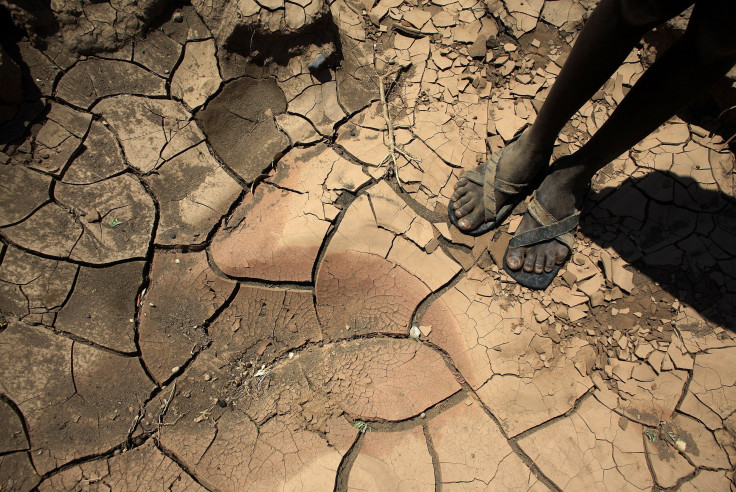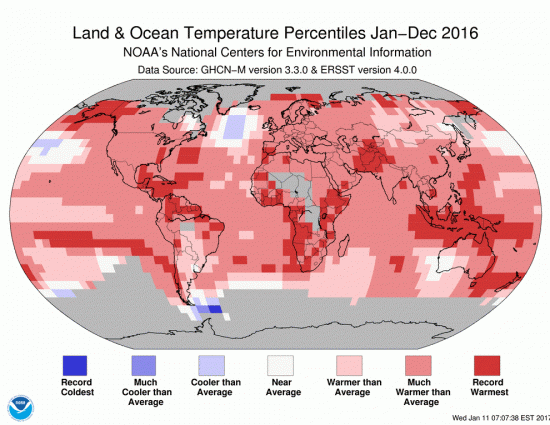Climate Change News: 2016 Was The Hottest Year On Record, NASA, NOAA and WMO Confirm

It’s official: 2016 was the hottest year on record, according to NASA, the National Oceanic and Atmospheric Administration ( NOAA ) and the World Meteorological Organization ( WMO ).
Last year surpassed 2015 and 2014’s temperatures, making it the third consecutive year of record-breaking numbers, the agencies said Wednesday.
“2016 is remarkably the third record year in a row in this series,” said NASA’s Goddard Institute for Space Studies (GISS) Director Gavin Schmidt. “We don’t expect record years every year, but the ongoing long-term warming trend is clear.”
Globally-averaged temperatures in 2016 were 1.78 degrees Fahrenheit (0.99 degrees Celsius) warmer that the mid-20th century. Most of the warming happened in the past 35 years, with 16 of the 17 years hottest years occurring since 2001.
Scientists say the weather phenomenon El Niño, which occurred for most of 2015 and the first third of 2016, contributed to the increasing annual global temperature last year by 0.2 degrees Fahrenheit (0.12 degrees Celsius).
Carbon Dioxide and Methane Records Increase
Carbon dioxide, CO2, stays in the atmosphere for centuries, and remains in the ocean, where it acidifies the waters for even longer. The CO2 level is now above the symbolic and significant level of 400 parts per million concentration in the atmosphere, the WMO said.
“Long-term indicators of human-caused climate change reached new heights in 2016,” WMO Secretary-General Petteri Taalas said. “Carbon dioxide and methane concentrations surged to new records. Both contribute to climate change.”

Arctic and Antarctica
Climate change also broke sea ice minimum records in the Arctic and Antarctica. The Arctic is warming two times faster than the global average, with the loss of sea ice impacting weather, climate and ocean circulation patterns in other parts of the world, the WMO said.
“Arctic sea ice was the lowest on record both at the start of the melt season in March and at the height of the normal refreezing period in October and November,” said Taalas.
Record-breaking ocean heat led to coral reef bleaching, Taalas added. Hot waters in 2016 contributed to the largest die-off of corals ever recorded on Australia’s Great Barrier Reef, researchers announced in November.
© Copyright IBTimes 2024. All rights reserved.











